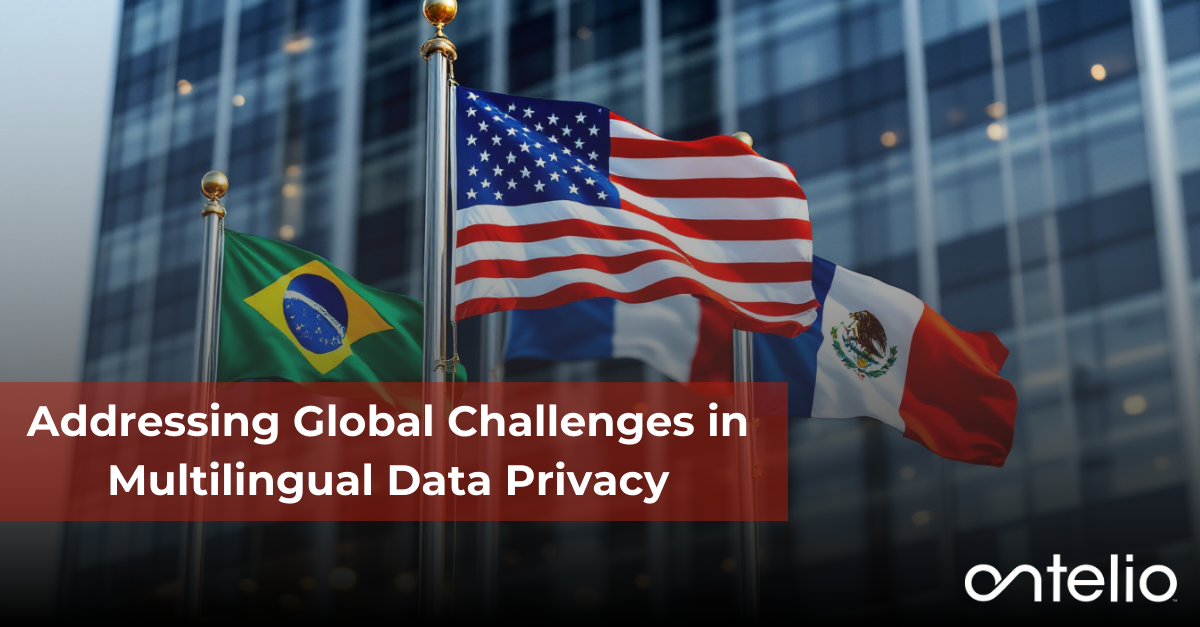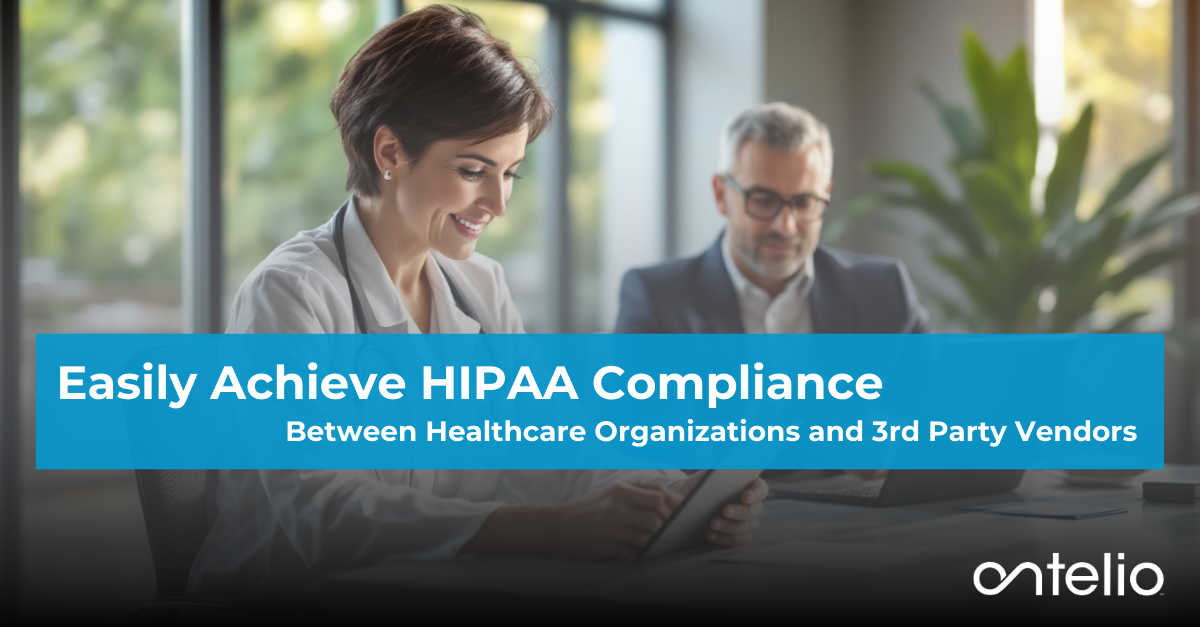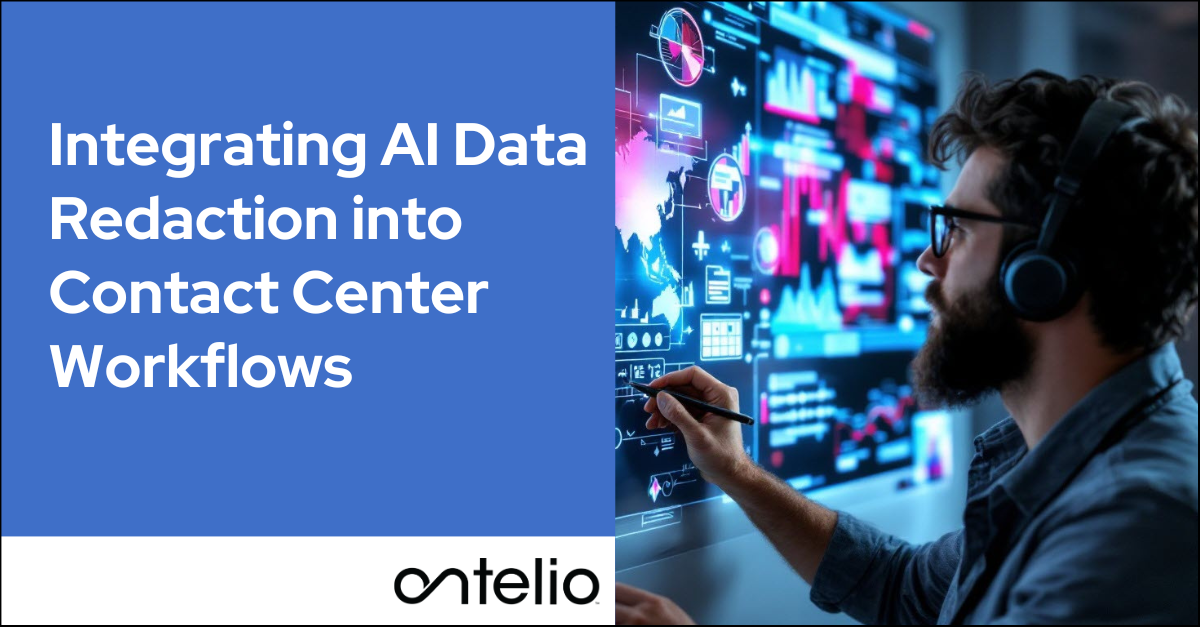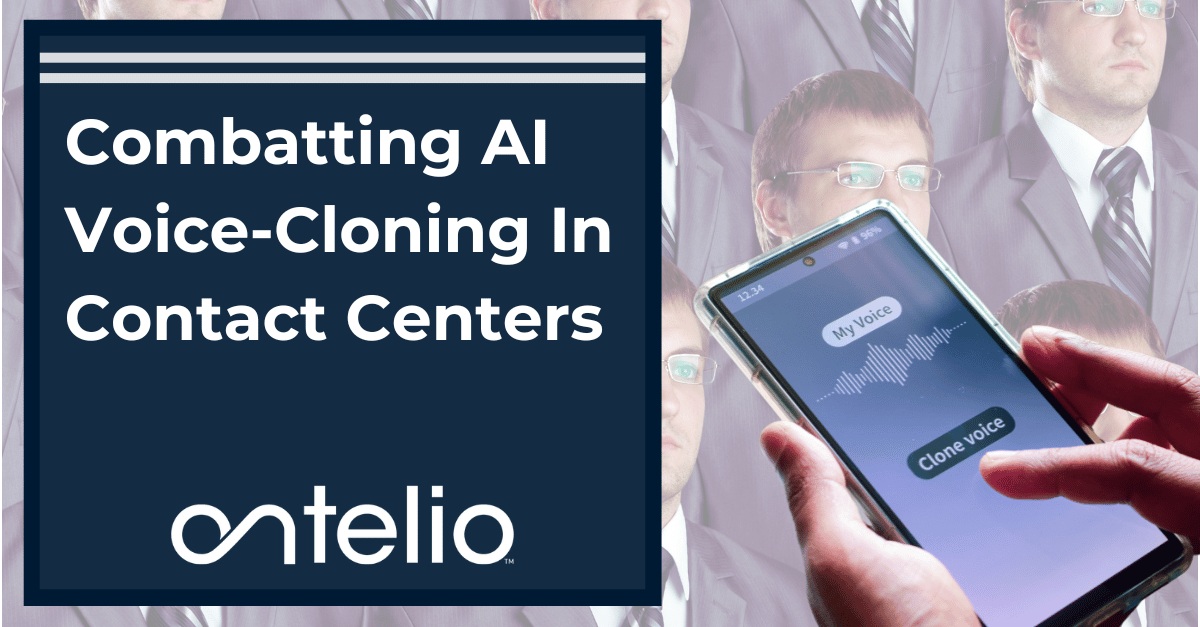HIPAA Compliance Between Healthcare Organizations and Business Associates
In the healthcare industry, managing and safeguarding Protected Health Information (PHI) is not only a regulatory necessity but also a vital...
5 min read
Marcel Fournier Oct 30, 2024 6:30:00 AM

As organizations expand globally, the complexity of managing data privacy across multiple languages and jurisdictions intensifies. Contact centers that serve diverse customer bases must navigate not only linguistic diversity but also a range of region-specific data protection regulations. Without adequate technological support, these organizations risk non-compliance, data breaches, and loss of customer trust. Advanced AI-driven solutions, like those offered by Ontelio, are essential for ensuring that global contact centers can manage these challenges effectively while securing sensitive customer information.
Multilingual interactions present inherent challenges in contact centers due to language differences and variations in regional dialects. Traditional redaction methods, such as keyword-based approaches or simple regular expressions, often fail to account for the nuances of language and context. This can lead to inconsistent protection, where sensitive information may be either insufficiently redacted or overly removed, compromising data usability.
Ontelio’s technology integrates advanced AI models, including Natural Language Processing (NLP) and Named Entity Recognition (NER), designed to understand the context within multilingual datasets. These AI models are not limited to recognizing specific keywords; they can differentiate between homonyms and cultural references, providing accurate and context-sensitive redaction across a variety of languages, including English, Portuguese, Spanish, and French, as well as more complex ones like Arabic and Mandarin.
Such capabilities are crucial when complying with regulatory frameworks like the General Data Protection Regulation (GDPR) in the EU, Brazil’s General Data Protection Law (LGPD), the California Privacy Rights Act (CPRA) in the U.S., Canada’s Personal Information Protection and Electronic Documents Act (PIPEDA), and the Health Insurance Portability and Accountability Act (HIPAA) in the U.S. These laws set stringent requirements for handling personal data, necessitating consistent application of privacy measures regardless of language or context. Ontelio’s AI technology ensures that sensitive information, such as payment details, personal identifiers, health information, and other protected health information (PHI) under HIPAA, is accurately identified and redacted, helping contact centers maintain compliance and build trust while preserving the integrity and utility of their data.
Global contact centers must adhere to a wide array of data privacy regulations that vary significantly by jurisdiction. In addition to Brazil’s LGPD, regions like the U.S. and Canada have their own privacy laws, such as the CPRA, HIPAA, and PIPEDA, which impose distinct obligations on organizations. The CPRA, for example, extends consumer privacy rights and places stricter requirements on the handling of personal data for California residents, while PIPEDA governs how organizations in Canada collect, use, and disclose personal information. HIPAA, meanwhile, sets out specific requirements for protecting health information, ensuring that contact centers dealing with healthcare data implement stringent safeguards to secure and redact PHI.
The challenge for multinational contact centers lies in managing these diverse requirements efficiently. Ontelio’s solutions provide a structured approach, ensuring compliance across different jurisdictions without requiring multiple systems or processes. By automating processes like data minimization and transparency reporting, Ontelio reduces the manual effort typically associated with compliance. It supports contact centers in aligning their data handling practices with specific regulatory requirements, such as HIPAA’s PHI protection standards, CPRA’s opt-out and deletion rights, and PIPEDA’s emphasis on consent and access rights.
Additionally, Ontelio provides automated audit trails, offering detailed documentation of data processing activities. This level of transparency is essential during regulatory audits, including those for HIPAA compliance, and helps mitigate risks associated with data breaches or compliance violations. Ontelio’s approach ensures that contact centers can demonstrate adherence to regulations like LGPD, CPRA, PIPEDA, and HIPAA efficiently, allowing them to maintain operations without disruption.
The shift towards hybrid and remote work models, accelerated by global changes, has introduced new vulnerabilities in data security. Employees accessing customer information from remote locations often rely on personal or unsecured networks, increasing the risk of data breaches. Additionally, the rise of AI-based threats, such as voice deepfakes or vishing (voice phishing), has added layers of complexity for contact centers handling sensitive information.
Ontelio’s AI-driven solutions are specifically designed to address these threats by offering real-time redaction capabilities that secure sensitive data during voice and text interactions. The system continuously monitors conversations for anomalies, such as unusual speech patterns that may signal fraud attempts or voice-cloning attacks. If these patterns are detected, Ontelio’s technology immediately redacts sensitive information, ensuring that customer and patient data, particularly PHI under HIPAA, remains protected.
This solution extends across various communication channels, including voice calls, text messages, and emails, providing omnichannel protection that is essential for modern contact centers. As attackers may exploit different communication methods simultaneously, Ontelio’s consistent and thorough security coverage across all platforms significantly reduces overall risk for distributed and hybrid work environments.
Handling large volumes of sensitive data efficiently is critical in high-traffic contact centers. The ability to redact information in near real-time ensures that data remains protected as soon as it is captured, minimizing exposure and aligning with regulations that require immediate data protection measures, such as GDPR, LGPD, CPRA, PIPEDA, and HIPAA.
Ontelio’s near real-time redaction technology automates the identification and masking of sensitive data, providing an immediate response that ensures customer and patient data, including PHI, is protected as it is processed. This minimizes the risk of non-compliance and reduces the time gap during which data may be vulnerable. Furthermore, Ontelio’s automated audit trails provide comprehensive documentation of redaction activities, offering clear and consistent records that simplify regulatory reviews and ensure transparency.
This capability not only supports compliance efforts but also helps organizations demonstrate their compliance readiness. By producing automated reports that document each data handling event, Ontelio enables contact centers to stay prepared for audits and regulatory checks, significantly reducing the manual burden typically associated with compliance management.
Data minimization is a core principle in many data protection regulations, including Brazil’s LGPD, the EU’s GDPR, the U.S.’s CPRA, Canada’s PIPEDA, and HIPAA in the healthcare sector. These regulations mandate that organizations collect only the necessary data required for specific business purposes and ensure that non-essential information is removed or anonymized to minimize exposure risk. Effective data management strategies must, therefore, extend beyond simple redaction to align with these minimization principles.
Ontelio’s AI systems automate the process of evaluating and minimizing stored data, ensuring that only essential information is retained. For example, while customer service records may contain vital interaction insights, they might also include unnecessary personal details or PHI. Ontelio’s technology separates critical business data from irrelevant identifiers, preserving the information necessary for operational analysis while enhancing privacy protections.
Such solutions not only reduce the risk of breaches but also help organizations comply with regulatory requirements by retaining only necessary information. This balance supports contact centers in making informed, data-driven decisions without increasing their risk profile. Ontelio’s approach ensures that privacy and data utility coexist, optimizing operations while maintaining compliance.
Organizations vary in their deployment needs, depending on their operational models, security requirements, and regional regulations. Ontelio’s solutions offer flexibility with both on-premise and cloud deployment options, allowing organizations to choose the setup that best aligns with their infrastructure and compliance needs.
For organizations with strict internal security protocols or that manage particularly sensitive information, deploying Ontelio on-premise ensures that data, including PHI, remains within the organization's physical infrastructure, minimizing risks associated with external access. Conversely, Ontelio’s cloud-based deployment option provides scalability and rapid integration, enabling organizations to implement solutions quickly and efficiently without large upfront investments. This flexibility allows contact centers to customize their data privacy approach according to their specific needs and regulatory constraints, ensuring secure and compliant operations regardless of their deployment preference.
The complexity of managing multilingual data privacy is an ongoing challenge for global contact centers, particularly when operating under various regulatory frameworks like Brazil’s LGPD, the EU’s GDPR, the U.S.’s CPRA and HIPAA, and Canada’s PIPEDA. As organizations handle sensitive data across regions, they must adopt technologies that not only secure this information but also ensure compliance in an efficient and standardized manner.
AI-driven solutions like those provided by Ontelio offer a structured and flexible approach, ensuring context-aware redaction that supports compliance with diverse regulatory requirements. With deployment options available for both cloud and on-premise setups, these technologies can be tailored to fit the unique security and operational needs of any organization. By aligning data management practices with international privacy regulations and securing customer data, including PHI, in real-time, Ontelio enables contact centers to operate efficiently, build trust, and maintain compliance across global markets.

In the healthcare industry, managing and safeguarding Protected Health Information (PHI) is not only a regulatory necessity but also a vital...

Contact centers must efficiently manage vast amounts of customer interactions while ensuring compliance with strict data privacy regulations. AI...

The rise of AI voice-cloning technology has introduced new challenges for cybersecurity, leaving financial institutions and consumers vulnerable to...